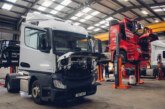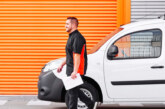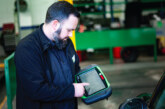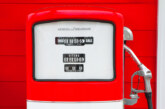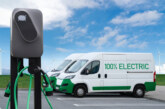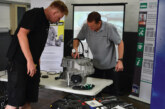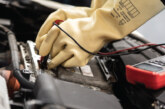
Whilst it is good news that more electric van models are becoming available in larger numbers in 2020, they remain relatively compromised. Peter Golding, Managing Director of FleetCheck, explains what needs to be done for fleets to hit zero emissions.
Alternatives to ‘niche’ electric vans are needed for fleets that require their operations emissions to reach zero in the medium term. “It really feels as though there is genuine momentum behind the electric car market now – a whole raft of models are finding their way to market that meet the needs of wide range of company motorists,” explains Peter Golding.
“The situation with vans remains more complex, however. The inherent compromises in terms of range and payload affecting the models – either available now or coming soon to market – mean that they are really only suitable for more niche operating conditions.
“If you need to carry heavy loads, travel longer distances, or a combination of the two, then electric vans quickly fall out of contention in terms of operational practicalities. Unsurprisingly, this applies to the majority of everyday van fleets. There are few to no indications that this situation will change in terms of improved performance in the medium term.
“The question is – where does that leave the van sector in terms of working towards zero emissions? In a market where diesel remains largely demonised, most van fleets have little alternative but to keep buying them for the want of a viable alternative.”
Peter says that the assumption that nonelectric vans would be used for longer distances and their electric counterparts used for last-mile delivery proved a limited solution.
“Last mile deliveries have a place, but they are a long way from a complete answer. Firstly, they require new city centre electric fleets to be bought, charged, operated, and stored. Secondly, they ignore the needs of people who need the contents of the van they drive every day to do their job. There is no last mile solution for a heating engineer or someone moving construction materials around,” continues Peter.
A dialogue must be started across the industry to create van zero emissions solutions that would work for many more businesses in the real world. “In a sense, we need to face up to the fact that the EV solutions that are likely to work well for large numbers of car drivers might not have the same viability for vans, and work out what we do about that in terms of both technology and operational practices.
“It may be that diesel PHEVs provide a workable solution for many organisations, with their EV range saved for areas where low or zero emissions are needed but, currently, there are very few of those vehicles available, and only a limited number of new models planned.”
Peter concludes: “Hydrogen is seen by many as the long-term answer but, at the moment, there is almost no infrastructure and vehicles remain rare and expensive. However, we need to be looking at all the available fuel options if mainstream van fleets are to work towards a zero emissions future at anywhere near the same speed as cars.”

